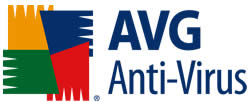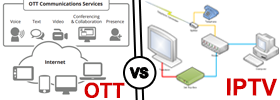Difference between Antivirus and Malware
Key Difference: Antivirus or anti-virus software is a software that is used to prevent viruses from entering the computer system and infecting files. Many antivirus programs these days also eliminate different kinds of malware in addition to viruses. Malware, short for malicious software, is an umbrella term that incorporates all kinds of software or programs that can be used to disrupt normal computing capabilities.

Just as it has become quite easy to find everything online, it has also become the best place to target people for personal information. There are many different malware that are looking out to harm the computer system or collect private data about the user. Fear not, there are companies that have built software and programs that can protect the user’s system. These are known as Antivirus and Antimalware software.
Antivirus or anti-virus software is a software that is used to prevent viruses from entering the computer system and infecting files. Many antivirus programs these days also eliminate different kinds of malware in addition to viruses. The main purpose of an antivirus software is to scan, detect, prevent and remove many different kinds of software. The software employs a variety of strategies to detect viruses including searching for known patterns of data within executable code. However, the computer is still vulnerable against new types of viruses that may use different codes.
In order to counter this, many antivirus programs use heuristics, which is a technique that is designed to solve a problem more quickly than a classic method. This is done by creating an approximate solution when the classical solution fails. Initially, only executable files were corrupted or infected with viruses but with the new viruses, many files could also become infected requiring antivirus programs to manually search all files and folders that are available in the system. There are also drawbacks to having antivirus programs such as false-positive. This is when the antivirus program detects a non-malicious file as a virus and deletes it from the system. If the file is an important file, it could cause the operating system to stop working or certain applications to crash. Hence, files should be reviewed before they are deleted from the system.

Malware, short for malicious software, is an umbrella term that incorporates all kinds of software or programs that can be used to disrupt normal computing capabilities. These software or programs can be used by attackers disrupt computing operation, gather sensitive information or access private secure systems. Almost all kinds of disruptive programs including spam mail are included under malware. Malware includes computer viruses, ransomware, worms, trojan horses, rootkits, keyloggers, dialers, spyware, adware, malicious BHOs, rogue security software, etc.
Malware comes in forms of code, scripts, mail, software and even legitimate programs. Malware is commonly used as a means to gather statistics, sensitive data (name, address, credit card information, etc.), send mass spam e-mails, host contraband data, send advertisement, etc. The most common used malware includes viruses and worms. Malware exploits security defects in software, operating system and applications. The most common way to keep the system from malware includes anti-malware and anti-virus software. If a system is already infected, then system restore and formatting can be used to fix the computer. There are also professionals that work to clean the computer of the malware for a cost.
Malware are software that cause problems in the computer including causing files to crash, altering or deleting files, saving private information and recording browsing habits. Antivirus is a software that aims at removing many different kinds of malware from a computer by detecting and preventing the malware from entering the computer in the first place.
Image Courtesy: ideologics.co.uk, outsourcemanila.com









Add new comment